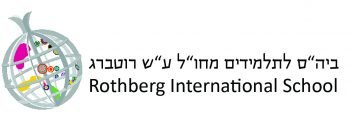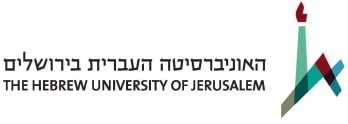Chaya Fischer is an academic writing and Hebrew instructor and the director of the Language Center at Hebrew University. She also teaches, designs curriculum and assessment methodologies, and provides training and mentoring at the Azrieli College of Engineering in Jerusalem, and is an associate editor for the interdisciplinary academic journal Partial Answers: Journal of Literature and the History of Ideas. Fischer has a master’s degree in English literature and a bachelor’s degree in cognitive science and English literature and linguistics.
Innovative Thinking
During a recent visit to HebrewU’s Rothberg International School (RIS) by a group of teachers in training from Europe, Fischer asked the young students to describe their common practices – classrooms, standards, testing – and discuss the reasons behind them. “Their bottom line was, ‘That’s how it works,’ or ‘That’s how this test is,’” she says. “‘We can’t do that in our course, because there isn’t enough time.’”
So she asked them to think critically about what they could change – what they might be able to do differently to solve the problems they faced.
“When I hear an answer like, ‘That’s just the way it is,’ … I prefer to say, ‘Okay, what would you want to do?’” she says. “And then figure out the way to do it. … We can’t change the amount of time we have in class, but we change how we structure our classes to make room for more to get done.”
Fischer’s interest in the way people think goes back to her time as an undergraduate student at HebrewU, when she studied cognitive science alongside English literature and linguistics. After earning her master’s degree, she started teaching both Hebrew and English.
At the time, she says, “a lot of these skills were taught more based on current habits than some sort of overall rationale … So there was a lot of room to innovate and create new materials.” Eventually, Fischer created a new program in the English Department for teaching language and academic writing.
New Center, New Methods
Today, Fischer is the director of HebrewU’s new Language Center – the hub of a university-wide effort to reinvigorate language studies and align each program with the Common European Framework of Reference for Languages. The framework uses six levels, similar to those used in the Hebrew ulpan program at RIS, to establish common standards of competencies across all languages. “It turns out that what the ulpan invented on its own closely corresponds to what came out of the Cambridge Research Center, and turned into an official standard methodology,” Fischer explains. That methodology will now be used for the other major languages taught at HebrewU – French, Italian, Spanish, German, Russian, Chinese, Japanese, and Arabic.
Fischer says that in addition to guidance from HebrewU’s central European partner, the Language Center at Freie Universität Berlin, she and her colleagues are working closely with the ulpan to transform each program’s approach. “The ulpan has opened its doors to these teachers who come and observe classes … We just need to learn from them, and they’re right here on campus.”
Language teachers are now gradually transferring from their departments to the Language Center, and working together as a professional group. “They identify first as language teachers, even if they teach different languages,” Fischer says. “We’re forming a professional community where we can interact with each other, and retrain and experiment together.”
Fischer says that spirit of cooperation has grown exponentially in just a few months. While some of her colleagues were initially skeptical, “I now meet the same people, and they’re like ‘Wow, this is cool.’ That’s exciting, to go from ‘Eh, things don’t change’ to ‘You know what? Actually, it wasn’t that hard.’”
And, she says, the difference for students is already clear: “It’s really exciting to walk into a classroom now – just in the second or third week of the semester – and see students speaking the language that they’re learning. That is the big revolution here.”
In the Classroom
While her work at the new Language Center keeps her busy, Fischer continues to teach as well. “I think it’s really important within the teacher training process not to lose touch with the students themselves,” she says. “I’ll have to be dragged out of the classroom!” Fischer says experimenting with new approaches is a critical part of her work, both as a teacher and for the center. “If I don’t test it out in my own classrooms, I don’t feel comfortable asking other teachers to do it. So I’m always trying to set an example, and to see what works and doesn’t work.”
Fischer sees each semester as a teacher as another adventure: “Every three-and-a-half months, you meet new students … And every person is a new experience.” Her favorite class? Aleph, the first level of the Hebrew ulpan, where “we get to see the miracle happen. People with no background in Hebrew whatsoever … leave this course where they can speak, read, write, understand people. It’s very, very cool.”
Education
- Master’s degree in English Literature, The Hebrew University of Jerusalem (2013)
- Teaching certificate in English and Hebrew as a Second Language, The Hebrew University of Jerusalem (2006)
- Bachelor’s degree in Cognitive Science and English Literature and Linguistics, The Hebrew University of Jerusalem (2006)

